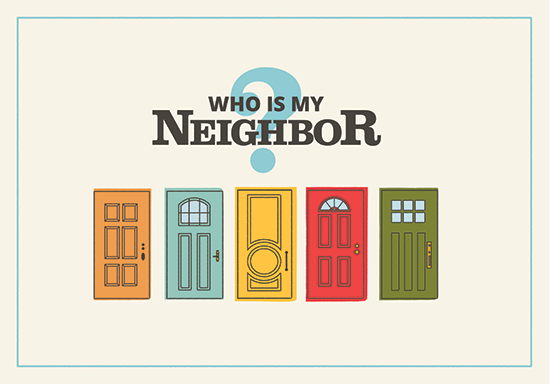




better together
by Eddie Moody, Executive Secretary, National Association of Free Will Baptists
Who Is My Neighbor?
As the November election draws closer, the U.S. is feeling a little less neighborly each day. It does not help to hear constantly: “This is the most important election in our nation’s history.” This division is not new. In 2018, one political analyst claimed the U.S. was more divided than at any time since the Civil War. [1] The Associated Press highlighted these divisions in 2016, noting the rifts go far deeper than politics. [2] What has emerged is a nation split over everything imaginable. We even heard strong disagreements about whether to wear masks during COVID-19. [3] How should the Christian respond to this deep-set division?
Try to be a neighbor. I remember hearing my childhood pastor David Paramore say, “Find out what offends a person and tread lightly.” He encouraged people to avoid topics offensive to others. Some readers may regard this as compromise, but it sounds more like the practicality of Romans 12:18 to me. This mentality helped David Paramore become an effective soul winner.
Today, this attitude might result in being careful about social media posts, or how we talk about politics from the pulpit. What is our goal when we speak or share or post? To promote the gospel! Do our words propel people to the gospel or repel them from the gospel? Sometimes, our statements may be popular with those culturally similar to us but push away those who differ.
We must look to the examples of good neighbors in Scripture. Consider Daniel and Nebuchadnezzer. Daniel had good reason to resent this king (2 Chronicles 36:6-21) but was clearly concerned for his wellbeing (Daniel 4:19). Jesus pointed to the example of the Good Samaritan, different in many ways from the wounded traveler. In the end, he proved to be more of a neighbor (Luke 10:36) than those with a similar background (Luke 10:31-32). If we are to fulfill the Great Commission, we must do likewise. What have we really accomplished if we only get along with people who look, act, and think like us (Matthew 5:43-48)?
Sometimes, we are not as neighborly as we think. For example, in Becoming a Welcoming Church, Thom Rainer’s research reveals many church visitors encounter an abundance of “holy huddles.” [4] While churches thought they were friendly,
in reality, they were friendly only to one another while leaving out those they did not know. We must be intentional about being neighborly.
Model neighborliness. The 2018 feature about Fred Rogers, Won’t You Be My Neighbor? brought in $22.8 million. Not bad for a documentary. Last year, another film about Fred Rogers, A Beautiful Day in the Neighborhood, starring Tom Hanks, brought in $67.8 million. It sounds like our culture has a hunger for neighborliness!
In 2018, George Barna released a study indicating Americans are friendly but lonely. [5] The majority (62%) of adults had two to five close friends, but one in five regularly feels lonely. The church can help fill this longing by modeling neighborliness. Jesus prayed Christians would be one, as He is one with the Trinity (John 17:21-22). When we reflect that unity—when we are good neighbors—we will point people to Him (John 17:23).
About the columnist: Better Together is a regular feature of ONE Magazine. Written by Eddie Moody, executive secretary of the National Association of Free Will Baptists, the column explores life and ministry. Have a suggested topic or question? Contact Eddie: emoody@nafwb.org.
1 The Hill. Analyst says U.S. most divided since the Civil War: https://thehill.com/hilltv/what-americas-thinking/409718-analyst-says-the-us-is-the-most-divided-since-the-civl-war
2 The Associated Press. Divided America: The Fracturing of a Nation, 2016.
3 News Break. Across nation, masks are the latest political, cultural divide: https://www.newsbreak.com/news/0OnlCKzp/across-nation-masks-are-the-latest-political-cultural-divide
4 Thom Rainer. Becoming a Welcoming Church. Nashville: B&H Publishing, 2018.
5 George Barna. U.S. Adults Have Few Friends and They’re Mostly Alike: https://www.barna.com/research/friends-loneliness/
|

